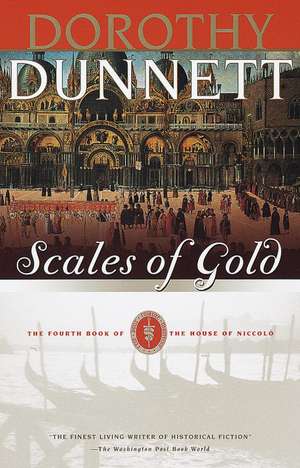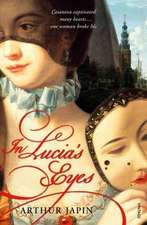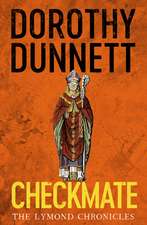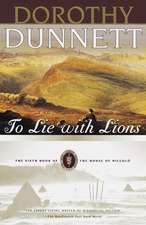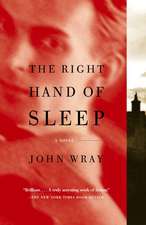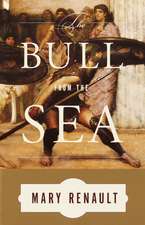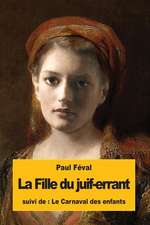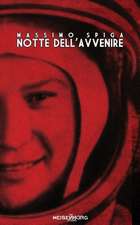Scales of Gold: The Fourth Book of the House of Niccolo: House of Niccolo, cartea 04
Autor Dorthy Dunnett, Dorothy Dunnetten Limba Engleză Paperback – 31 mai 1999
The year 1464 finds Nicholas back in Venice. Plagued by enemies bent on dissolving his assets and smearing his character, he sets sail for Africa, legendary location of the Fountain of Youth, home to a descendant of Sheba and Solomon, and the source of gold in such abundance that men prefer to barter in shells. He will learn firsthand the brutality and grandeur of the Dark Continent, from the horror of the slave trade to the austere nobility of Islamic Timbuktu. He will discover, too, the charms of the beautiful Gelis van Borselen--a woman whose passion for Nicholas is rivaled only by her desire to punish him for his role in her sister s death. Erotic and lush with detail, Scales of Gold embraces the complexity of the Renaissance, where mercantile adventure couples with more personal quests behind the silken curtains of the Age of Discovery.
Preț: 131.31 lei
Nou
Puncte Express: 197
Preț estimativ în valută:
25.13€ • 27.31$ • 21.13£
25.13€ • 27.31$ • 21.13£
Carte disponibilă
Livrare economică 31 martie-14 aprilie
Preluare comenzi: 021 569.72.76
Specificații
ISBN-13: 9780375704802
ISBN-10: 0375704809
Pagini: 544
Ilustrații: WITH 1 MAP AND GENEALOGY
Dimensiuni: 133 x 203 x 24 mm
Greutate: 0.44 kg
Ediția:VINTAGE BOOKS.
Editura: Vintage Publishing
Seria House of Niccolo
ISBN-10: 0375704809
Pagini: 544
Ilustrații: WITH 1 MAP AND GENEALOGY
Dimensiuni: 133 x 203 x 24 mm
Greutate: 0.44 kg
Ediția:VINTAGE BOOKS.
Editura: Vintage Publishing
Seria House of Niccolo
Notă biografică
Dorothy Dunnett was born in 1923 in Dunfermline, Fife, Scotland. Her time at Gillespie's High School for Girls overlapped with that of the novelist Muriel Spark. From 1940-1955, she worked for the Civil Service as a press officer. In 1946, she married Alastair Dunnett, later editor of The Scotsman.
Dunnett started writing in the late 1950s. Her first novel, The Game of Kings, was published in the United States in 1961, and in the United Kingdom the year after. She published 22 books in total, including the six-part Lymond Chronicles and the eight-part Niccolo Series, and co-authored another volume with her husband. Also an accomplished professional portrait painter, Dunnett exhibited at the Royal Scottish Academy on many occasions and had portraits commissioned by a number of prominent public figures in Scotland.
She also led a busy life in public service, as a member of the Board of Trustees of the National Library of Scotland, a Trustee of the Scottish National War Memorial, and Director of the Edinburgh Book Festival. She served on numerous cultural committees, and was a Fellow of the Royal Society of Arts. In 1992 she was awarded the Office of the British Empire for services to literature. She died on November 9, 2001, at the age of 78.
Dunnett started writing in the late 1950s. Her first novel, The Game of Kings, was published in the United States in 1961, and in the United Kingdom the year after. She published 22 books in total, including the six-part Lymond Chronicles and the eight-part Niccolo Series, and co-authored another volume with her husband. Also an accomplished professional portrait painter, Dunnett exhibited at the Royal Scottish Academy on many occasions and had portraits commissioned by a number of prominent public figures in Scotland.
She also led a busy life in public service, as a member of the Board of Trustees of the National Library of Scotland, a Trustee of the Scottish National War Memorial, and Director of the Edinburgh Book Festival. She served on numerous cultural committees, and was a Fellow of the Royal Society of Arts. In 1992 she was awarded the Office of the British Empire for services to literature. She died on November 9, 2001, at the age of 78.
Extras
Chapter 1
To those who remembered him, it was typical that Nicholas should sail into Venice just as the latest news reached the Rialto, causing the ducat to fall below fifty groats and dip against the ?cu. Instead of leading the welcome party, Gregorio sent Cristoffels to St Mark's Basin instead, with a group of senior officials who didn't know Nicholas. He hoped Cristoffels remembered what his employer looked like.
The word, of course, had spread to the Exchange that vander Poele's ship had passed the bar and was on its way to the anchorage. In the midst of the flurry-affirming deals, sending off couriers with drafts and remittances-Gregorio suffered snatches of good-humoured banter. For more than two years he had run the Bank of Niccol? in place of its founder, and his fellow lawyers and brokers liked to claim he lived in dread of the coming accounting. It might have been funnier if it hadn't, in its way, been correct.
He had posted a couple of runners between St Mark's and the Rialto. When the cry came from the Bridge, he was reasonably ready to leave. It meant only that the ship's boat from the Adorno had reached the Foscari bend, and he could still achieve the Bank building before it. The Grand Canal was a long, busy waterway lined with palaces; and the roundship's crew, long at sea, would scarcely speed with a heavy craft laden with luggage.
Nevertheless, Gregorio went immediately to the Bridge, throwing instructions to a scurrying junior. It was too hot for his doublet and gown, even considering the occasion; even considering what Margot thought about it. He let his servant, trotting, button him into his pourpoint and shed his clerk at the steps, although he turned to call after him: 'And remember, purchase at usance!' Then he fought to the rail at the top of the drawbridge and paused for a sight of the Grand Canal stretching before him.
The sun, admitted tax-free between the palaces of two of his clients, struck the water and blinded him. He pulled down the brim of his hat until it met his unhandsome nose, and trained his middle-aged eyes, which were thirty-two like the rest of him, on the confusion of intermeshed oars belonging to passenger skiffs, heavy barges and lighters, vessels laden with fish and with vegetables passing up and down and across on their daily purposes. A two-pole gondola came towards him, gilded and tasselled and managed by liveried Negroes wearing the badge of the family Loredano. It slid under the Bridge, making way for a jolting boatful of overnight revellers in carnival mantles and masks. They passed, screaming into the dazzle.
Beyond them stood his Bank, a third of the way between the Bridge and the bend. His Bank, his office, his warehouse, his home. The Casa di Niccol?, all now to reside in the hands of a man whose script on the outside of a letter-packet made him feel faint.
He should hurry. Clattering down the far side of the Bridge, Gregorio turned right and set off quickly along his own bank, striding up and down bridges and passing between the rocking gondolas and noble fa?ades of the richest side of the richest highway in Venice. Glancing from time to time at the canal, he saw some altercation had jammed it. He had seldom seen its traffic so thick or so sluggish. He slackened his pace. Nothing was going to row very fast at this rate.
Now he could see the jutting edge of his Bank, its red and white patterned wall washed over with light from the side-canal and a crowd grouped on the Grand Canal frontage before it. His household and clerks, out to catch a first glimpse of their master.
Margot wouldn't be there, she would be watching upstairs on the balcony. Margot, to whom he was not married and whom he would trust before anyone, had read the last reports written by Nicholas before sailing to Venice from Cyprus. In these Nicholas had set down, for the eye of his lawyer alone, his private reasons for leaving the island. They had been brief, and contained neither excuse nor apology. Nor had he indicated what he intended to do once he reached Venice. Gregorio, much disturbed, didn't know what to expect of this meeting.
He did intend, however, to arrive first at the Bank. It looked as if he would. The mooring posts before the double doors of the Ca' Niccol? were still empty; he had had his freight vessels moved round to the side. He had also sent a few extra men to the Basin. Robbers were not very likely, but Nicholas had achieved notorious success for himself and his Bank while in Cyprus. In business, Nicholas was unerring, and merciless, if not caught in time.
And now he was here. The great boat from the roundship was suddenly visible: an ugly, well-painted vessel, low in the water with coffers and men, and lying athwart the crowded canal as it waited to cross to its mooring. The rowers were the Adorno's own marines, dressed in caps and clean tunics. Packed among them were the Bank's envoys, and servants.
Distinguishable from them all were the two principal passengers, seated aft and robed as for the elaborate charade of their landing. One he knew at once by his colour and size: Loppe, by God! Lopez, the gifted African who managed what could be managed in Nicholas's aberrant life, including his sugar estates.
And the other, his equal in towering brawn, was Nicholas vander Poele, Flemish merchant, shading his eyes as he scanned the congestion. The sun flashed on a ring at his knuckle.
He had made some concessions to heat: his short coat was of silk, and his twisted headgear, concealing all but some tufts of brown hair, was stitched from the thinnest of linen. His face below it was baked brown and smooth as a biscuit and his eyes, grossly large, gave his concentrated gaze an aspect of innocence which the curve of his lips contradicted. Gregorio, standing in shade, thought to call and then didn't. Lopez sat, looking about him and once, Gregorio noticed, leaned to murmur to Nicholas, who glanced briefly upwards.
The oars idled, unable to progress. Watermen shouted. The cause of the blockage, abruptly revealed, proved to be a single craft ineptly managed upstream, its passage marked by the drumming of timber and a chorus of curses accompanied by outbursts of bibulous laughter. A boatload, it appeared, of shouting, carolling revellers, its sides furrowed and scraped, its oars scarred, its bow and blades gouging for it a battering passage. As it rampaged through the water, the sun glinted on a handful of fur and a mask.
It was the carnival boat he had noticed. The situation of the ducat in relation to the groat and the mark abandoned its place in Gregorio's consciousness.
The Adorno's boat, in midstream, waited with whatever patience men had, within sight of the end of a voyage. Nicholas looked about him, listening to Lopez, and stooping to grope for some possession or other beneath him. The festive boat blundered closer, and those endangered hastened, with shouts, to move further off. With professional competence, the Adorno's rowers dug in their oars and swung their great boat aside from its passage.
Now the party-goers were plain: the wide-brimmed black hats of the oarsmen, the painted chins and lurid masks of the twelve burly men they were carrying. The leader stood cloaked in the prow, one foot on the gunwale, one flamboyant fist cocked on its knee. On his head was the mask of a goose and below the cloak his other hand, like those of his comrades, was hidden.
It could not have been by chance that, this time, the carnival craft suddenly found the application and skill to avoid every boat in its path. It was not by chance that, instead of stumbling from vessel to vessel, it adroitly slipped through each watery space until, conducted smoothly and well, it came shooting suddenly forward, the ramming prow aimed straight for the laden ship's boat from Cyprus.
Gregorio's shout was one of a chorus of warning. The mariners dug in their oars, changing angle to lessen the impact. The expected crash didn't come. Just before the two boats collided, the pursuing oarsmen feathered their blades. The masked figure bent down, and, lifting something heavy and small, threw it hard. It fell within the ship's boat, clicked and held. It was a grappling iron. As the two boats whipped together, the man in the goose mask threw himself from his own boat to the other, and his companions followed.
Gregorio saw the mariners half rise and stagger; saw Cristoffels and the rest use their fists, saw the flood of revellers pour down the big vessel, fending off blows, to where the coffers were piled. The boat rocked. At the farthest end, Lopez sprang to his feet. Nicholas gathered what he was holding and rose, his right arm drawing painfully back. In his grasp was a bow, short and ornate and powerful, its arrow trained on the leader.
He said, 'Turn back your cloaks, and drop your weapons into the water.'
The man in the goose mask cried out. He screamed, 'Monseigneur, don't shoot! Wait! Have mercy! My lords, we beg for our lives!' With frantic hands he unfastened his cloak, his gaze piteous. Hastily he cast off the garment and lifting the object he bore, extended it trembling to Nicholas. Then, with a whistle of devilish laughter, he tossed it aloft.
It hung, with the eyes of everyone on it: a carnival wand made of paper, with a grotesque, gilded head at one end. Then it began to descend in a spiral of unravelling ribbon. Someone started to laugh. Squealing, cackling and booing, the men in motley joined in the hilarity and, thrusting their hands from their cloaks, each produced an identical baton, brightly ribboned, with fantastic knobs of goblins and dragons with which they set about slapping their victims. They carried no weapons at all.
Around the two boats, a chuckle arose. On the other side of the canal, people thrust forward to see what was happening, and faces appeared at grand windows. On the open gallery of the Palazzo Barzizza, directly opposite, there was a sudden, short movement.
Lopez said, 'Ser Niccol?.'
It was so brief and so quiet that Gregorio wouldn't have caught it except that all his attention was on them. The revellers continued to caper. Nicholas turned, the strung bow swinging through ninety degrees with him. The man in the goose mask had let down his points and was preparing a final, copious gesture.
The Negro stretched across Nicholas, and, seizing the man like a dribbling sack, lifted and set him down standing before them. The man, surprised, gave a howl. The floating audience, now on its feet, grasped one another and laughed, even when the man howled again. Then the laughter started to die as those closest saw his falling arms swing at the elbows, and blood cascade frothing and red from the slackening mouth under the mask. Driven hard through his chest was an arrow.
Lopez dropped to one knee, holding the body and pulling it free of Nicholas. The boarders stopped. In the moment's silence that followed the shock, Nicholas adjusted his aim, his gaze never leaving the highest, splendid tiered gallery of the merchant's house opposite. Then he released his fingers and shot.
Far across the canal someone screamed, the sound speaking from wall to wall of the palaces. The man who had been on the balcony opposite was there no longer, but his body, jerking forwards, was hurtling into the canal. There it sank, the shards of a bow floating upwards.
Then the air was filled with cries, from men and women and seagulls.
On the boat, the revellers dumbly recoiled and turning, scrambled back to the craft they had come from. The grapple jerked free and, seizing their looms, the oarsmen threw their boat sideways and into reverse, setting course for the basin and the wider waters of the lagoon, and leaving their leader behind them.
The boats which half-heartedly started to follow fell back. A ring of craft formed about Nicholas and, across the canal, a group of watermen sought about to retrieve the dead bowman. As the Adorno's boat came to the bank, Gregorio saw the face of the unarmed reveller, bare of its mask. It was no one he knew. Nor, if they caught them, would the drunken boatload of boarders admit to anything, he supposed. They had carried no weapons. They had been decoys, that was all.
Something was bruising Gregorio's arm: Margot's fingers. 'I saw it,' she said. 'The man on the gallery was aiming at Nicholas.'
'I think so,' he said. 'Lopez had noticed him. Nicholas and he were both on guard; they expected it. But for that, no one would have known where, in the confusion, the arrow had come from.'
'Expected it?' Margot said. She was pale, from shock and from running. 'Expected an attack on his life? On his homecoming?'
Gregorio didn't answer. She had read that letter from Cyprus, as he had. They should have realised what it meant. He watched the big boat coming near and said, 'Lopez. He will stay here. It must be made perfectly clear to the household-'
'It will be,' Margot said.
The boat berthed. Nicholas stepped ashore and smiled at them all. He said, 'Welcome home. I thought I should perhaps say it for you. Gentlemen, I do beg your pardon. If you'll give me leave to settle affairs with the Magistrate-Goro, will you come with me?-then I shall be delighted to come back at leisure and meet you. Don't, on any account, delay your dinner.'
The water was still full of boats, and people exclaiming. Across the canal, men and vessels were clustered beneath the Palazzo Barzizza. A dead man lay in the boat at his feet. Gregorio could see the official craft approaching between them. He said, 'Your clothes . . .'
'Blood, I know,' Nicholas said. 'I paid a lot for this coat. I wanted to make an impression.'
A cursory dent appeared in one cheek and then vanished. It was meant perhaps to signal distress, masked by a kind of grim humour. Without an accompanying glance, it looked merely indifferent.
Under the coat, his doublet turned out to be clean. He threw the stained garment to his servant and turned, adjusting his expression, to deal with the Magistrate. Gregorio said, 'Do you know who it was?'
'Oh, I should think so,' Nicholas said. 'But I shan't say if you don't.'
Later, returning with Nicholas to the Bank, Gregorio thought to count his blessings, which amounted after consideration to one. There would be no prosecution.
Nicholas, who could always act, had acted with awful aplomb. Who wished for his death? He feared-the enemies of the Venetian Republic. There were those who, whatever their oaths, hesitated to join the Serenissima in her crusade against the infidel Turk. He laid no personal blame on the Duke of Burgundy or on France, although today's news must shake the credit of every bank, and not only his own. Neither would he point to the city of Genoa, which might resent a soldier and merchant whose deeds served the nobler Republic. Indeed, he saw here no Christian crime. The name of NiccoI? vander Poele was well known to be cursed by the Infidel.
To those who remembered him, it was typical that Nicholas should sail into Venice just as the latest news reached the Rialto, causing the ducat to fall below fifty groats and dip against the ?cu. Instead of leading the welcome party, Gregorio sent Cristoffels to St Mark's Basin instead, with a group of senior officials who didn't know Nicholas. He hoped Cristoffels remembered what his employer looked like.
The word, of course, had spread to the Exchange that vander Poele's ship had passed the bar and was on its way to the anchorage. In the midst of the flurry-affirming deals, sending off couriers with drafts and remittances-Gregorio suffered snatches of good-humoured banter. For more than two years he had run the Bank of Niccol? in place of its founder, and his fellow lawyers and brokers liked to claim he lived in dread of the coming accounting. It might have been funnier if it hadn't, in its way, been correct.
He had posted a couple of runners between St Mark's and the Rialto. When the cry came from the Bridge, he was reasonably ready to leave. It meant only that the ship's boat from the Adorno had reached the Foscari bend, and he could still achieve the Bank building before it. The Grand Canal was a long, busy waterway lined with palaces; and the roundship's crew, long at sea, would scarcely speed with a heavy craft laden with luggage.
Nevertheless, Gregorio went immediately to the Bridge, throwing instructions to a scurrying junior. It was too hot for his doublet and gown, even considering the occasion; even considering what Margot thought about it. He let his servant, trotting, button him into his pourpoint and shed his clerk at the steps, although he turned to call after him: 'And remember, purchase at usance!' Then he fought to the rail at the top of the drawbridge and paused for a sight of the Grand Canal stretching before him.
The sun, admitted tax-free between the palaces of two of his clients, struck the water and blinded him. He pulled down the brim of his hat until it met his unhandsome nose, and trained his middle-aged eyes, which were thirty-two like the rest of him, on the confusion of intermeshed oars belonging to passenger skiffs, heavy barges and lighters, vessels laden with fish and with vegetables passing up and down and across on their daily purposes. A two-pole gondola came towards him, gilded and tasselled and managed by liveried Negroes wearing the badge of the family Loredano. It slid under the Bridge, making way for a jolting boatful of overnight revellers in carnival mantles and masks. They passed, screaming into the dazzle.
Beyond them stood his Bank, a third of the way between the Bridge and the bend. His Bank, his office, his warehouse, his home. The Casa di Niccol?, all now to reside in the hands of a man whose script on the outside of a letter-packet made him feel faint.
He should hurry. Clattering down the far side of the Bridge, Gregorio turned right and set off quickly along his own bank, striding up and down bridges and passing between the rocking gondolas and noble fa?ades of the richest side of the richest highway in Venice. Glancing from time to time at the canal, he saw some altercation had jammed it. He had seldom seen its traffic so thick or so sluggish. He slackened his pace. Nothing was going to row very fast at this rate.
Now he could see the jutting edge of his Bank, its red and white patterned wall washed over with light from the side-canal and a crowd grouped on the Grand Canal frontage before it. His household and clerks, out to catch a first glimpse of their master.
Margot wouldn't be there, she would be watching upstairs on the balcony. Margot, to whom he was not married and whom he would trust before anyone, had read the last reports written by Nicholas before sailing to Venice from Cyprus. In these Nicholas had set down, for the eye of his lawyer alone, his private reasons for leaving the island. They had been brief, and contained neither excuse nor apology. Nor had he indicated what he intended to do once he reached Venice. Gregorio, much disturbed, didn't know what to expect of this meeting.
He did intend, however, to arrive first at the Bank. It looked as if he would. The mooring posts before the double doors of the Ca' Niccol? were still empty; he had had his freight vessels moved round to the side. He had also sent a few extra men to the Basin. Robbers were not very likely, but Nicholas had achieved notorious success for himself and his Bank while in Cyprus. In business, Nicholas was unerring, and merciless, if not caught in time.
And now he was here. The great boat from the roundship was suddenly visible: an ugly, well-painted vessel, low in the water with coffers and men, and lying athwart the crowded canal as it waited to cross to its mooring. The rowers were the Adorno's own marines, dressed in caps and clean tunics. Packed among them were the Bank's envoys, and servants.
Distinguishable from them all were the two principal passengers, seated aft and robed as for the elaborate charade of their landing. One he knew at once by his colour and size: Loppe, by God! Lopez, the gifted African who managed what could be managed in Nicholas's aberrant life, including his sugar estates.
And the other, his equal in towering brawn, was Nicholas vander Poele, Flemish merchant, shading his eyes as he scanned the congestion. The sun flashed on a ring at his knuckle.
He had made some concessions to heat: his short coat was of silk, and his twisted headgear, concealing all but some tufts of brown hair, was stitched from the thinnest of linen. His face below it was baked brown and smooth as a biscuit and his eyes, grossly large, gave his concentrated gaze an aspect of innocence which the curve of his lips contradicted. Gregorio, standing in shade, thought to call and then didn't. Lopez sat, looking about him and once, Gregorio noticed, leaned to murmur to Nicholas, who glanced briefly upwards.
The oars idled, unable to progress. Watermen shouted. The cause of the blockage, abruptly revealed, proved to be a single craft ineptly managed upstream, its passage marked by the drumming of timber and a chorus of curses accompanied by outbursts of bibulous laughter. A boatload, it appeared, of shouting, carolling revellers, its sides furrowed and scraped, its oars scarred, its bow and blades gouging for it a battering passage. As it rampaged through the water, the sun glinted on a handful of fur and a mask.
It was the carnival boat he had noticed. The situation of the ducat in relation to the groat and the mark abandoned its place in Gregorio's consciousness.
The Adorno's boat, in midstream, waited with whatever patience men had, within sight of the end of a voyage. Nicholas looked about him, listening to Lopez, and stooping to grope for some possession or other beneath him. The festive boat blundered closer, and those endangered hastened, with shouts, to move further off. With professional competence, the Adorno's rowers dug in their oars and swung their great boat aside from its passage.
Now the party-goers were plain: the wide-brimmed black hats of the oarsmen, the painted chins and lurid masks of the twelve burly men they were carrying. The leader stood cloaked in the prow, one foot on the gunwale, one flamboyant fist cocked on its knee. On his head was the mask of a goose and below the cloak his other hand, like those of his comrades, was hidden.
It could not have been by chance that, this time, the carnival craft suddenly found the application and skill to avoid every boat in its path. It was not by chance that, instead of stumbling from vessel to vessel, it adroitly slipped through each watery space until, conducted smoothly and well, it came shooting suddenly forward, the ramming prow aimed straight for the laden ship's boat from Cyprus.
Gregorio's shout was one of a chorus of warning. The mariners dug in their oars, changing angle to lessen the impact. The expected crash didn't come. Just before the two boats collided, the pursuing oarsmen feathered their blades. The masked figure bent down, and, lifting something heavy and small, threw it hard. It fell within the ship's boat, clicked and held. It was a grappling iron. As the two boats whipped together, the man in the goose mask threw himself from his own boat to the other, and his companions followed.
Gregorio saw the mariners half rise and stagger; saw Cristoffels and the rest use their fists, saw the flood of revellers pour down the big vessel, fending off blows, to where the coffers were piled. The boat rocked. At the farthest end, Lopez sprang to his feet. Nicholas gathered what he was holding and rose, his right arm drawing painfully back. In his grasp was a bow, short and ornate and powerful, its arrow trained on the leader.
He said, 'Turn back your cloaks, and drop your weapons into the water.'
The man in the goose mask cried out. He screamed, 'Monseigneur, don't shoot! Wait! Have mercy! My lords, we beg for our lives!' With frantic hands he unfastened his cloak, his gaze piteous. Hastily he cast off the garment and lifting the object he bore, extended it trembling to Nicholas. Then, with a whistle of devilish laughter, he tossed it aloft.
It hung, with the eyes of everyone on it: a carnival wand made of paper, with a grotesque, gilded head at one end. Then it began to descend in a spiral of unravelling ribbon. Someone started to laugh. Squealing, cackling and booing, the men in motley joined in the hilarity and, thrusting their hands from their cloaks, each produced an identical baton, brightly ribboned, with fantastic knobs of goblins and dragons with which they set about slapping their victims. They carried no weapons at all.
Around the two boats, a chuckle arose. On the other side of the canal, people thrust forward to see what was happening, and faces appeared at grand windows. On the open gallery of the Palazzo Barzizza, directly opposite, there was a sudden, short movement.
Lopez said, 'Ser Niccol?.'
It was so brief and so quiet that Gregorio wouldn't have caught it except that all his attention was on them. The revellers continued to caper. Nicholas turned, the strung bow swinging through ninety degrees with him. The man in the goose mask had let down his points and was preparing a final, copious gesture.
The Negro stretched across Nicholas, and, seizing the man like a dribbling sack, lifted and set him down standing before them. The man, surprised, gave a howl. The floating audience, now on its feet, grasped one another and laughed, even when the man howled again. Then the laughter started to die as those closest saw his falling arms swing at the elbows, and blood cascade frothing and red from the slackening mouth under the mask. Driven hard through his chest was an arrow.
Lopez dropped to one knee, holding the body and pulling it free of Nicholas. The boarders stopped. In the moment's silence that followed the shock, Nicholas adjusted his aim, his gaze never leaving the highest, splendid tiered gallery of the merchant's house opposite. Then he released his fingers and shot.
Far across the canal someone screamed, the sound speaking from wall to wall of the palaces. The man who had been on the balcony opposite was there no longer, but his body, jerking forwards, was hurtling into the canal. There it sank, the shards of a bow floating upwards.
Then the air was filled with cries, from men and women and seagulls.
On the boat, the revellers dumbly recoiled and turning, scrambled back to the craft they had come from. The grapple jerked free and, seizing their looms, the oarsmen threw their boat sideways and into reverse, setting course for the basin and the wider waters of the lagoon, and leaving their leader behind them.
The boats which half-heartedly started to follow fell back. A ring of craft formed about Nicholas and, across the canal, a group of watermen sought about to retrieve the dead bowman. As the Adorno's boat came to the bank, Gregorio saw the face of the unarmed reveller, bare of its mask. It was no one he knew. Nor, if they caught them, would the drunken boatload of boarders admit to anything, he supposed. They had carried no weapons. They had been decoys, that was all.
Something was bruising Gregorio's arm: Margot's fingers. 'I saw it,' she said. 'The man on the gallery was aiming at Nicholas.'
'I think so,' he said. 'Lopez had noticed him. Nicholas and he were both on guard; they expected it. But for that, no one would have known where, in the confusion, the arrow had come from.'
'Expected it?' Margot said. She was pale, from shock and from running. 'Expected an attack on his life? On his homecoming?'
Gregorio didn't answer. She had read that letter from Cyprus, as he had. They should have realised what it meant. He watched the big boat coming near and said, 'Lopez. He will stay here. It must be made perfectly clear to the household-'
'It will be,' Margot said.
The boat berthed. Nicholas stepped ashore and smiled at them all. He said, 'Welcome home. I thought I should perhaps say it for you. Gentlemen, I do beg your pardon. If you'll give me leave to settle affairs with the Magistrate-Goro, will you come with me?-then I shall be delighted to come back at leisure and meet you. Don't, on any account, delay your dinner.'
The water was still full of boats, and people exclaiming. Across the canal, men and vessels were clustered beneath the Palazzo Barzizza. A dead man lay in the boat at his feet. Gregorio could see the official craft approaching between them. He said, 'Your clothes . . .'
'Blood, I know,' Nicholas said. 'I paid a lot for this coat. I wanted to make an impression.'
A cursory dent appeared in one cheek and then vanished. It was meant perhaps to signal distress, masked by a kind of grim humour. Without an accompanying glance, it looked merely indifferent.
Under the coat, his doublet turned out to be clean. He threw the stained garment to his servant and turned, adjusting his expression, to deal with the Magistrate. Gregorio said, 'Do you know who it was?'
'Oh, I should think so,' Nicholas said. 'But I shan't say if you don't.'
Later, returning with Nicholas to the Bank, Gregorio thought to count his blessings, which amounted after consideration to one. There would be no prosecution.
Nicholas, who could always act, had acted with awful aplomb. Who wished for his death? He feared-the enemies of the Venetian Republic. There were those who, whatever their oaths, hesitated to join the Serenissima in her crusade against the infidel Turk. He laid no personal blame on the Duke of Burgundy or on France, although today's news must shake the credit of every bank, and not only his own. Neither would he point to the city of Genoa, which might resent a soldier and merchant whose deeds served the nobler Republic. Indeed, he saw here no Christian crime. The name of NiccoI? vander Poele was well known to be cursed by the Infidel.
Recenzii
"Dunnett's pace is robust, her grasp of the Renaissance mind subtle and convincing." --Kirkus Reviews
"As a writer of historical romances, Dorothy Dunnett . . . epitomizes [the genre]. . . She salts it with wit and intelligence and serves it with style and elegance." -- San Francisco Chronicle
"The finest living writer of historical fiction"--The Washington Post Book World
"As a writer of historical romances, Dorothy Dunnett . . . epitomizes [the genre]. . . She salts it with wit and intelligence and serves it with style and elegance." -- San Francisco Chronicle
"The finest living writer of historical fiction"--The Washington Post Book World
Descriere
Erotic, lush with detail, the fourth book in the House of Niccolo series embraces the complexity of the Renaissance as it tells of Nicholas's trip to Africa, where he learns firsthand of the brutality and grandeur of the Dark Continent. Map.
